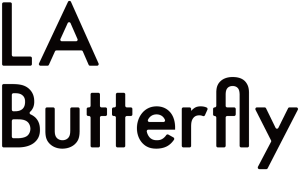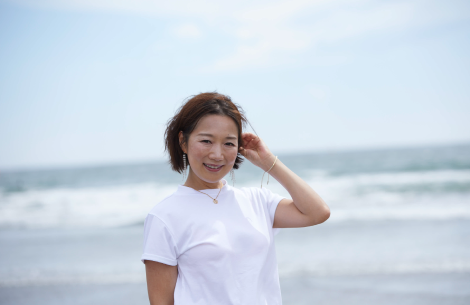We had the privilege of speaking with Ms. Mifuru Shirato, who overcame Stage 4 breast cancer. She shared with us how she accepted her cancer diagnosis, faced the people around her, and how she transitioned to her current role as an advocate. Her advice is invaluable for others in similar circumstances.
The Moment of Coming Out About Breast Cancer
“I became more positive after being diagnosed with breast cancer.” These are the vibrant words of Ms. Mifuru Shirato, who has gone through the experience of breast cancer.
Working as an office worker and using her breast cancer diagnosis as a catalyst, Ms. Mifuru Shirato realized her childhood dream of becoming a manga artist. She didn’t appear to be someone battling a serious illness like breast cancer.
The typical portrayals of cancer and breast cancer in movies, dramas, and novels often instill a very pessimistic bias in us. However, many cancer patients, like Ms. Mifuru Shirato, lead lives that are not so different from those of people without cancer.
In her manga, “How I Survived Stage 4 Breast Cancer and Still Managed to Go on Group Dates,” Ms. Mifuru Shirato portrays how she balanced not only her treatment and daily life but also romance and leisure activities.
In this interview, we delved into her feelings when she revealed her breast cancer diagnosis to her friends and acquaintances and what kind of understanding she sought from them at that time.
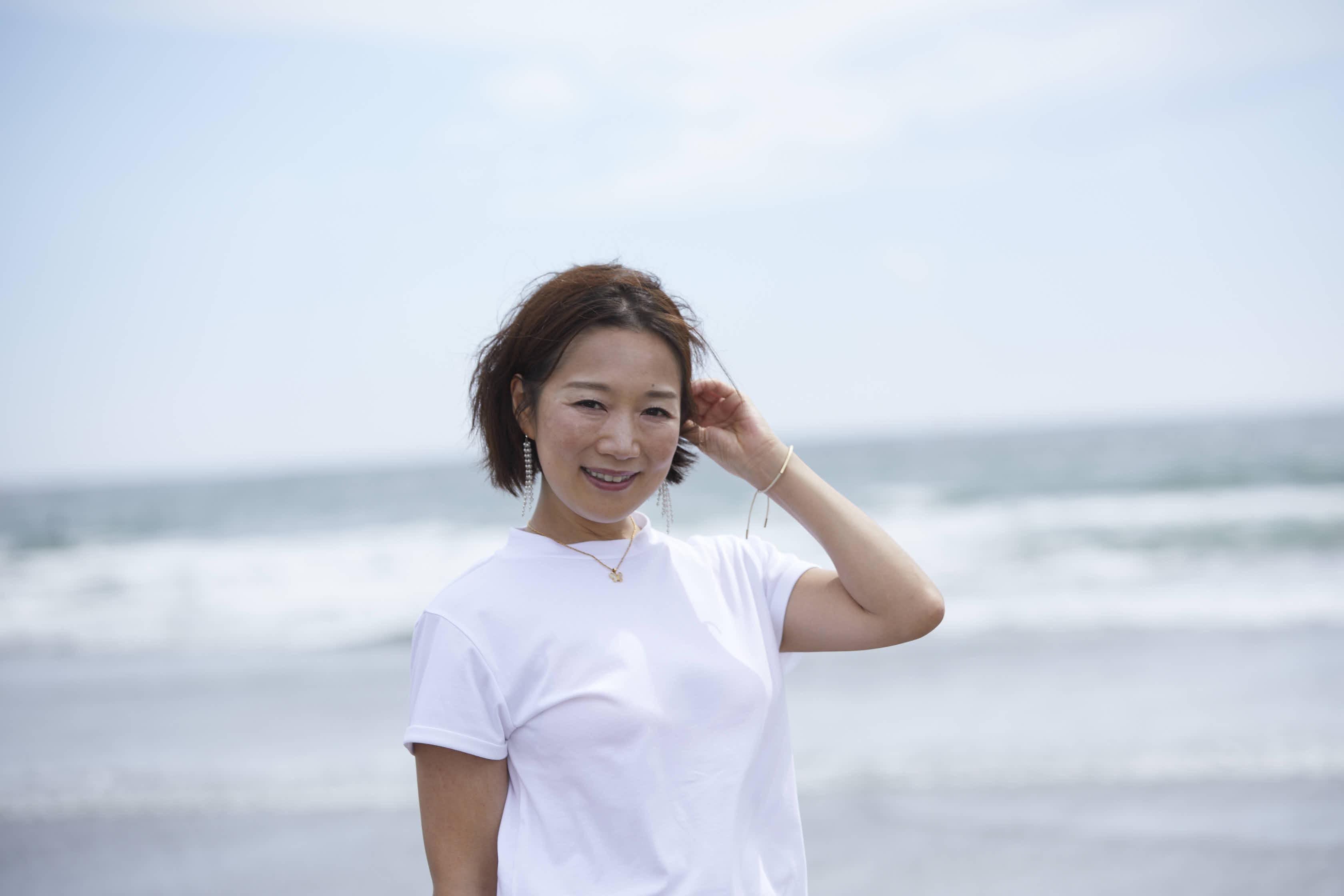 | Mifuru Shirato – ProfileOffice Worker, Romance Columnist, and Manga Artist In the summer of 2015, she made her debut as a manga artist and writer, energetically balancing both roles alongside her full-time job. Her works include “Gokon and the City” (an e-book) and “How I Survived Stage 4 Breast Cancer and Still Managed to Go on Group Dates” (published by Kinobooks). Twitter @takara0722 |
In your daily life, do you often meet people who have cancer or breast cancer?
It’s rare to meet them by chance. However, I believe I’ve encountered more cancer patients than I realize. When I was diagnosed with breast cancer, I confided in a few friends about my condition.
What surprised me was how many of them said, “Actually, me too…”
I used to hesitate to come out about my breast cancer, so I understand. I think there are more people than you’d expect who can’t bring themselves to speak about having cancer or breast cancer.
What made you hesitate to tell others that you had breast cancer?
The reasons I hesitated were that I knew people would worry, and I didn’t want to cause concern or make anyone feel uncomfortable. Also, when I told romantic partners or potential partners about my breast cancer, some of them did pull back a little. Those are the main reasons, I think.
I was also told many times that people didn’t know what to say after I came out to them, and as a breast cancer patient, I completely understand that feeling. That’s why there was a time when I just couldn’t bring myself to tell anyone.
You’ve come out about your breast cancer in your manga as well. What led to that decision?
Now I think it’s because I’m on the path to recovery.
In the early stages, as I depicted in my manga, I wasn’t sure if I would recover from breast cancer, and at that time, I was so scared and anxious that I could only tell the boyfriend I was dating.
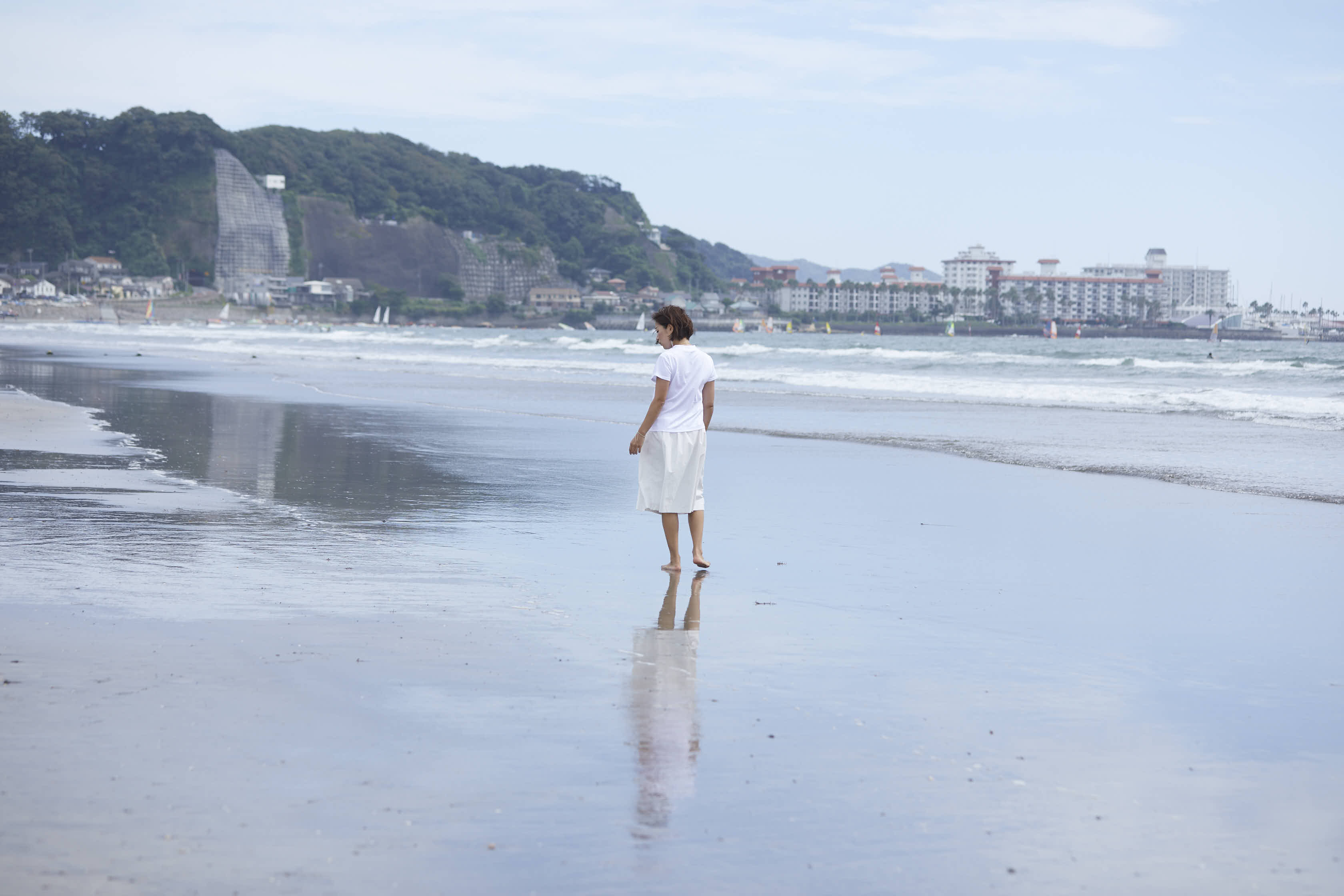
How did you feel about being treated differently after coming out about your breast cancer, and in what situations did you especially notice this?
As I mentioned earlier, I hadn’t told many people about my breast cancer. It wasn’t until August 2017, when I started seeing a clear path to recovery, that I first wrote an article about my breast cancer for a publication I regularly contribute to. This was my big coming out.
At that time, I was about four years into my breast cancer treatment and nearing full recovery. It was also around the time when Mao Kobayashi, who had been sharing her experiences with breast cancer and her battle, passed away. Her openness inspired me to think about what I could do as a breast cancer patient, which led me to write the article under my real name.
That article was featured on Yahoo’s top news section for quite some time, so many friends who didn’t know about my breast cancer saw it and reached out to me. Despite the article focusing on my journey towards recovery, their messages were almost like, “Are you going to die?“
At that moment, I realized, “This is how little people know about breast cancer.” Before my diagnosis, I too would have thought, “Are they going to die?” when hearing someone had cancer, so I understand that it’s a normal reaction. But once I found myself in this position, I realized just how significant the gap in understanding really is, even though I know it’s unavoidable.
Also, when I came out, some people would bluntly ask, “How long do you have left?” without hesitation, which really surprised me (laughs).
It’s such a sensitive topic, so I found those questions quite tactless when talking to a breast cancer patient.
What surprised me even more was how normal it is for people to equate “having cancer” with “how many days left to live.” A prognosis isn’t something that can be determined immediately, and even those who aren’t cancer patients don’t have any guarantees that they’ll be alive tomorrow. If you think about it, we all have a limited time left, even if we don’t know exactly how much.
One thing that made me happy after coming out was when a friend looked up what foods are good for cancer and gave them to me. That kind of thoughtfulness really touched me. Of course, I want my friends to treat me usually and not change their behavior, but small acts of kindness like that mean a lot to me. Since being diagnosed with breast cancer, I’ve come to appreciate human kindness deeply.
What do you think about when you decide to come out?
It might sound cliché, but I mostly hope the person I’m telling takes care of their health (laughs). Since getting breast cancer, I’ve caused a lot of trouble for people, so I feel that staying healthy is a way of showing love to those around me.
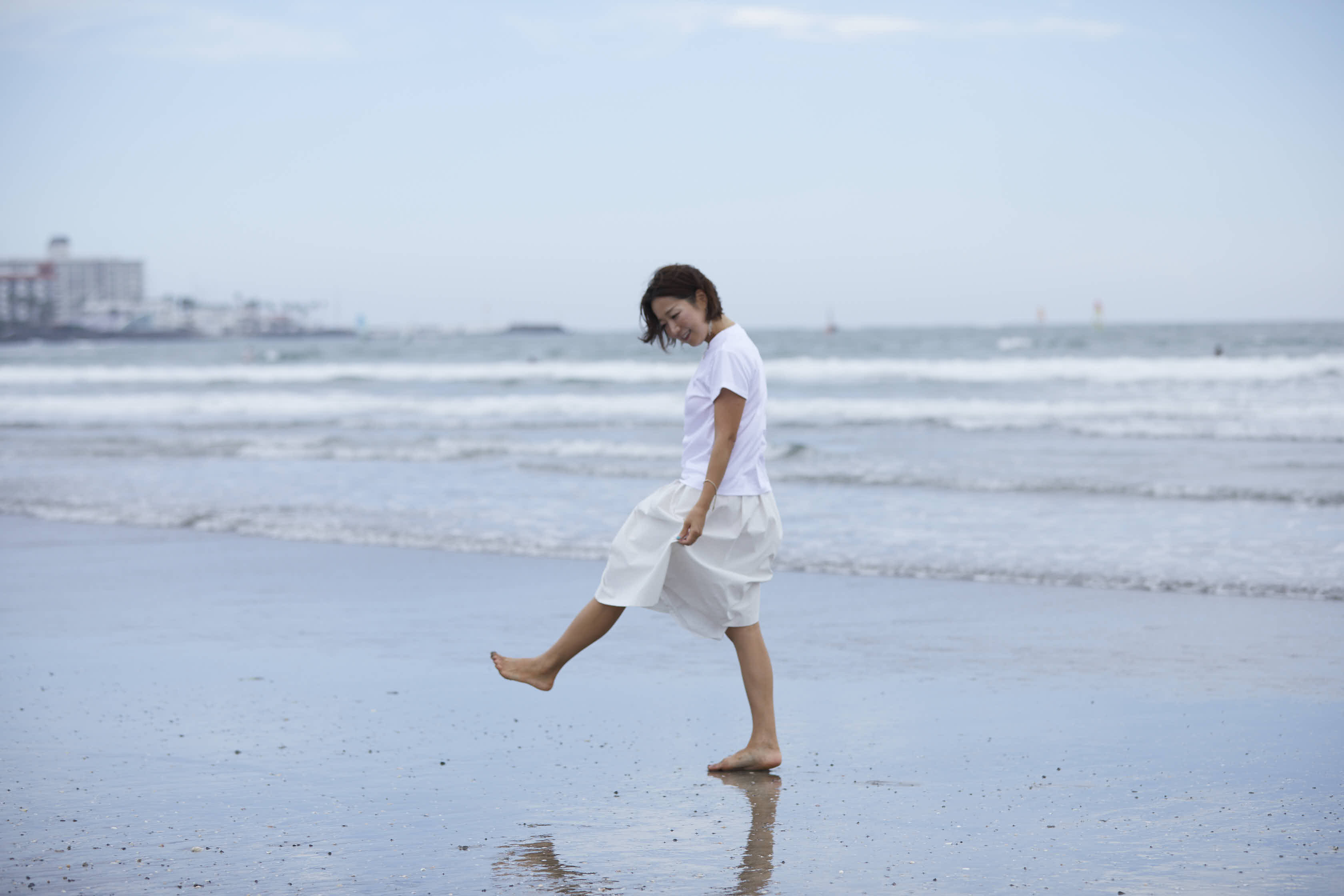
After being diagnosed with breast cancer, I started challenging myself to do things I hadn’t been able to do before or things I wanted to do but never pursued. One of those was fulfilling my childhood dream of becoming a manga artist. I started drawing after my diagnosis, and eventually, I debuted as a professional manga artist. Just because you’re a cancer patient doesn’t mean you can’t do things or that you have to give up on your dreams.
Even during my treatment, I traveled abroad with a wig, went to tons of parties, and drank alcohol… My lifestyle was pretty wild, and while I started taking more care of my body, my life didn’t change dramatically.
Just because I’m a cancer patient doesn’t mean I’ve changed from who I was before my diagnosis. If anything, I’ve become more positive since getting breast cancer. I’ve always been active, but at some point, I think I became even more active than before (laughs).
The Mindset Shift from Stage 4.
Mifuru Shirato faced not only breast cancer but also her own mortality.
How did she handle the moments when she fell into negativity?
We also asked her how her relationships with others changed after her diagnosis and what kind of conversations she had with other cancer patients.
What was the turning point that made you more active?
It was when I was diagnosed with breast cancer and truly realized that life has an end. It was the first time I seriously confronted the concept of death as the end of my life.
Of course, it’s not that I was completely unaware of death, but before my diagnosis, I never really thought about dying as I went through my daily life. After being diagnosed and having some time to come to terms with it, I realized I needed to cherish and make the most of each day.
Do you think you were able to stay positive because you naturally have an optimistic personality?
Oh, I definitely have my low moments. My mood swings can be pretty intense, and there were days when I’d just cry all day out of fear. Especially in the beginning after my diagnosis, there were times when I was emotionally unstable.
Did you find yourself “facing” or “overcoming” the fears and negative emotions that came with your cancer diagnosis?
I think I faced it. I consciously focused on not holding back and trying to stay stress-free. If I wanted to cry, I’d let myself cry. If I wanted to laugh, I’d laugh wholeheartedly. I prioritized being honest with myself and enjoying those basic human emotions.
I played a lot, fell in love, cried a lot, and got angry. I really enjoyed those natural, human emotions…
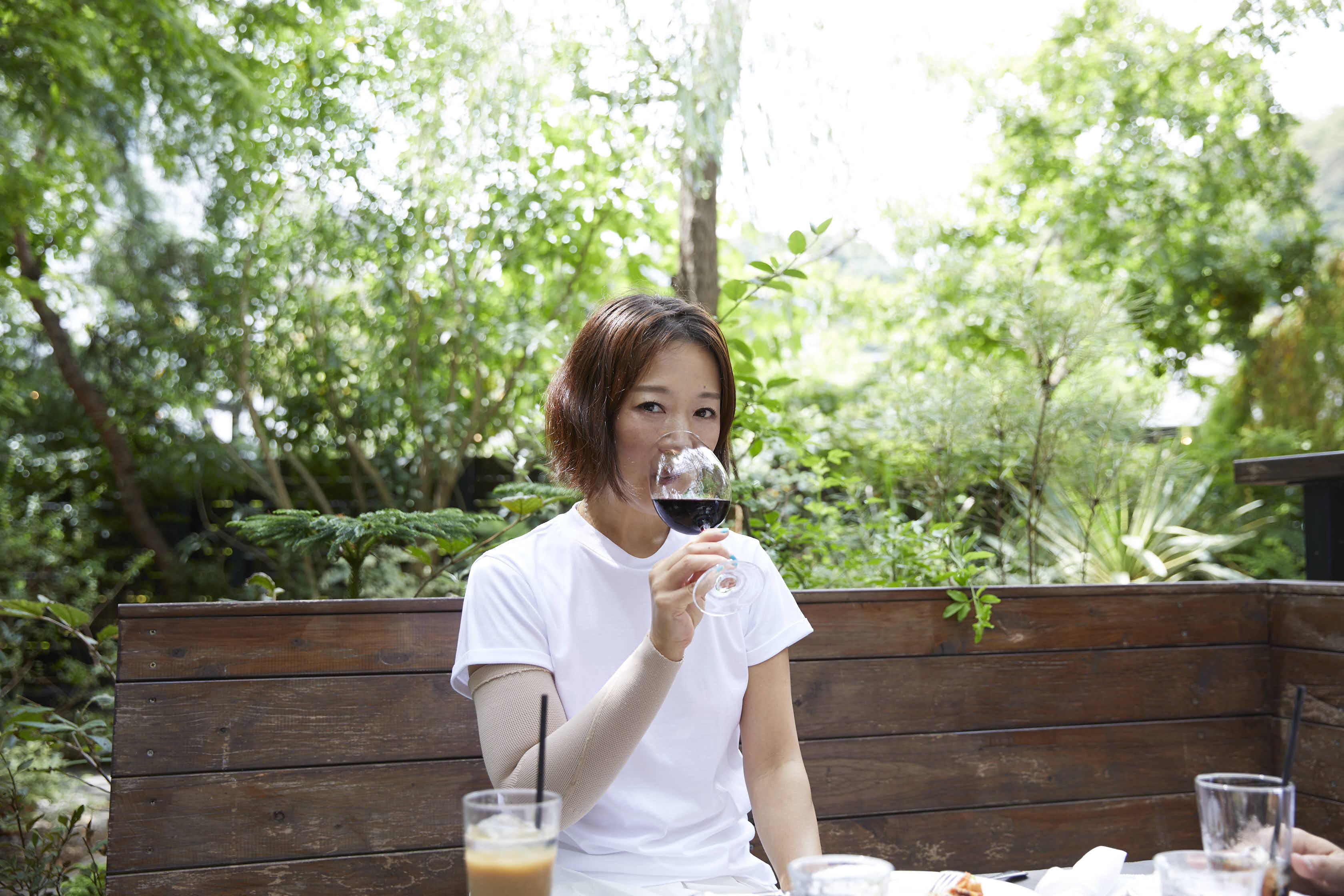
Before being diagnosed with breast cancer, I often found myself swayed by the opinions of those around me. I guess I didn’t take the time to seriously think about what I wanted to do, so I was somewhat aimless.
I thought I’d just go to parties, meet someone nice, get married, and then, once I was married, I’d probably have some free time to finally do what I wanted.
But after being diagnosed with breast cancer, I suddenly panicked, thinking, “If I don’t do what I want now, I might die! This is bad!” (laughs).
However, looking back now, I realize something important. When you get a disease like cancer, your chances of dying may indeed be higher than those who don’t have it. But still, there’s no guarantee that anyone will be alive tomorrow.
It’s not just about me; it’s something that applies to everyone.
Thinking about that, I decided to face my breast cancer and take care to cherish and make the most of the time I have now.
A single word from the doctor is what draws the line between being a patient or not.
I was always someone who got straight A’s in every category during health checkups. I never had any issues come up in medical exams, so when I was suddenly told, “You have breast cancer. It’s Stage 4,” I couldn’t believe it.
Cancer is, after all, a unique illness. It’s said that people with weakened immune systems, or those with low immunity, are more likely to get cancer, but the exact cause hasn’t been fully understood.
As I mentioned before, my health check results always came back healthy, but in my daily life, I drank more than most people, smoked, and overall, I lived a pretty unhealthy lifestyle.
I even drank alcohol the night before my health checkups, which I shouldn’t have done. Looking back now, even though it might not be directly related to my breast cancer, there are plenty of things in my unhealthy lifestyle that I can see as potential contributing factors.
I thought I was healthy despite living an unhealthy lifestyle, but in reality, my body was probably crying out for help.
I believe that at some point, while living that way, my immune system weakened, and that’s when the breast cancer developed.
This kind of thinking is something you can apply retroactively, but when I was first diagnosed, I was listing potential causes in my mind—”Was it this? Was it that?”—while still fiercely resisting the reality of having breast cancer.
There were plenty of people around me living the same way, so I also thought, “Why just me?”
So, after being diagnosed, did you investigate the cause, feel down, and then eventually start thinking more positively?
Yes, as I mentioned earlier, you can list as many causes as you want in hindsight.
But in the end, the biggest thing for me was realizing that death could happen to me too, and that was the turning point that made me face my life going forward.
Did your involvement in any communities change after you got breast cancer?
The communities I’m part of haven’t changed. I used to have broad but shallow relationships with people, but now they’ve become deeper and narrower.
As I’ve mentioned before, thinking about my own mortality made me want to spend my time with people who are truly important to me and who I enjoy being with, because that’s what’s good for me.
Before I got breast cancer, I didn’t have any friends who were cancer patients, so we didn’t talk about illnesses.
But after I got breast cancer, I did have a friend who was diagnosed as well. She had lymph node metastasis from her armpit and was at stage 2 or 3, so she didn’t undergo chemotherapy. She already had two children, so she didn’t hesitate to have a mastectomy, and her treatment was completed after that. Even with cancer, treatments and conditions vary greatly from person to person, and if it hasn’t spread to other organs, some people can finish their treatment relatively easily.
When talking with friends who are cancer patients, do conversations usually focus on treatment methods?
Yes. We’d talk about whether we’d tried certain treatments or methods and also about the side effects. Those topics came up a lot.
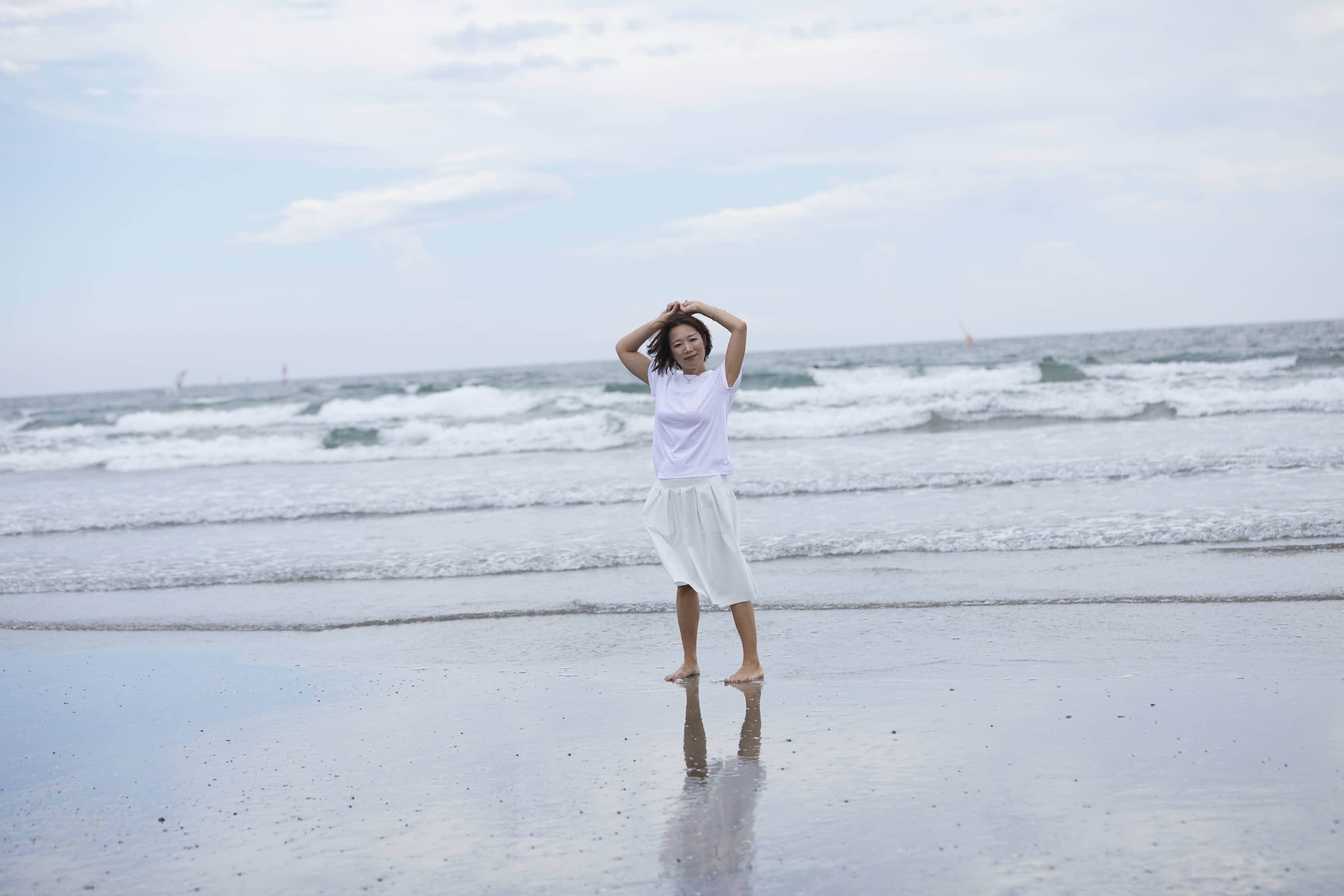
Do you think cancer patients want to talk about these kinds of topics with each other?
You do get curious about how others are doing. Especially when undergoing treatment, the most concerning thing is how other people are managing their treatment.
When I first found out I had breast cancer, I was really desperate, so I tried everything that was said to be effective. I took dozens of different medications, so I definitely wanted to exchange information like that.
Second Opinions and Daily Life
Did you consider getting a second opinion? What made you decide to seek one?
My mother did a lot of research, as mothers do, probably even more than I did. She spent so much time on it. The second opinion was from a clinic where one of her classmates from school was the director. It was a breast surgery specialty clinic.
I brought various diagnostic documents and MRI images, but the opinion didn’t differ from what my primary doctor at the first hospital had said. So, I didn’t transfer my treatment there. However, the doctor at that clinic reassured me, saying that even though the cancer had spread to my bones, it hadn’t infiltrated the organs or deeply penetrated the bones, so it could be treated. I remember feeling relieved when they said that.
Do most patients tend to think negatively?
Honestly, I haven’t encountered many negative people, and even among my friends who’ve opened up about having cancer, none of them were at an advanced stage like I was. Most of them were at the early stages, so I didn’t really feel a negative atmosphere.
But after I published my manga, I did receive messages from patients, former patients, and people still undergoing treatment. Apparently, being as positive and unconventional as I am is quite rare (laughs).
I even gave a copy of my manga to my doctor. They were a bit taken aback when they saw how openly I depicted my free-spirited lifestyle. Their first reaction was, “You were having this much fun?! I didn’t hear about all this partying!” (laughs).
I even gave a copy of my manga to my doctor. When they saw how openly I depicted my free-spirited lifestyle, they were a bit taken aback. Their first reaction was, “You were having this much fun?! I didn’t hear about all this partying!” (laughs).
By the way, what kind of messages have you received?
To be honest, there have been mixed reactions.
Positive messages include things like, “You’ve raised the bar for what cancer patients can do,” or, “Thank you for raising the bar.”
Drinking alcohol is generally something cancer patients shouldn’t do, and there isn’t much of an image of cancer patients going to mixers or traveling abroad. But by openly writing about my actions and relationships, I received messages like, “Thank you for showing that cancer patients can live normal lives just like everyone else.”
Of course, there were also negative opinions, such as, “It feels like you only became a manga artist because of the ‘Stage 4 breast cancer’ power word, even though your drawing skills aren’t particularly great.” And to be honest, that person wasn’t entirely wrong.
In the beginning, whenever I saw those negative opinions, it would hurt, and I’d feel down, but now I don’t let it bother me at all.
You only live once, so I see every opportunity as a chance, like my manga debut, and I want to keep challenging myself with new things in the future.
May I ask about your daily life? I heard that while working, you were also going to the hospital. Did you experience any changes in how you manage your time in daily life?
Since my cancer was initially progressive, I was told to start chemotherapy as soon as possible, and if I didn’t agree to chemotherapy, I would need to undergo a full mastectomy. I wanted to avoid a full mastectomy, so I started chemotherapy right away. After about six months of chemotherapy, the tumor shrank enough that I could avoid a mastectomy and instead have a partial mastectomy. After that, I began radiation therapy, and then hormone therapy, which I’m still continuing today.
The toughest part was during the chemotherapy. The side effects were severe. I had to go to the hospital for treatment every three weeks, and at that time, I was working at an advertising agency. After starting treatment, I asked my company to move me from a front-line role to a back-office role to reduce my workload.
The side effects of chemotherapy were quite severe right after the treatment, and I would take about three days off after going to the hospital. I think I took about a week off each month. Other than that, I went to work as usual.
Despite the side effects and feeling unwell on some days, I was still able to work normally.
Yes, I commuted normally, worked, and even went to social gatherings after work (laughs).
So, as long as the company provided an environment where you could take breaks when needed due to side effects, there wasn’t a problem, right? Were there any other points you wished they had considered?
I’ve since changed jobs, but since it was a large company, I think they had a good system for flexible role changes and time off. They allowed me to take breaks and covered expenses, and I don’t really think of anything more they could have done. At that time, I didn’t feel any inconvenience regarding working conditions.
For cancer treatment with hospital visits, the company’s system was sufficient to maintain daily life.
Yes, it might have been a good company. Lucky me. My salary was average. Although my salary decreased due to reduced working days and a change in department, it was tough because I needed money for treatment but couldn’t earn as much. In fact, most of the treatment costs were covered by my parents.
Additionally, I didn’t have cancer treatment insurance, which I regret. I didn’t come from a family with a history of cancer, so I thought I was immune to it. It’s really a mystery why I suddenly got cancer (laughs).
Also, compared to before I had cancer, I’m living a healthier life now (laughs). Thanks to cancer, I’ve become healthier. I’ve started exercising more. I do a marine sport called stand-up paddleboarding.
I’m also planning to run a marathon this year. I’ve never run before, so I’m a bit anxious, but having goals is important. When people say there’s no stress, it might seem like they’re just taking it easy, but I believe being stress-free means living a fulfilling life. It’s about feeling satisfied and having a sense of vitality and purpose in life.
Advice for fellow patients as a survivor
Do you have any advice for fellow patients as survivors?
Advice, huh? This might sound repetitive, but it’s important to think, “I’ll do it someday” or “I’ll do it later” as “I should do it right now.”
Not just cancer patients but everyone can feel hopeless and negative sometimes. I think those feelings aren’t good for cancer patients. It’s tough to eliminate negative thoughts, but if you keep dwelling on them, they can become stressors and lower your immune system, creating a vicious cycle.
When you’re going through such a negative period, how would you like those around you to interact with you?
It depends on the person, but I personally wanted people to be like bodhisattvas—supportive and understanding. Of course, just being coddled isn’t the answer (laughs).
When I first found out I had cancer, I was very demanding, saying things like, “I’m so unfortunate, so you should listen to me” to my parents and my then-boyfriend.
Naturally, this strained my relationship with my boyfriend, and we broke up. Through that experience of people drifting away, I realized that being a cancer patient didn’t mean I could be unreasonable.
After all, while considerations for my health are important, being unreasonable just because of my condition is frustrating (laughs).
Realizing these things helped me grow as a person, I think (laughs).
During that time, many bad things happened simultaneously, and I was deeply depressed.
These are situations everyone might face. Could you tell us about how you managed to recover from that?
As I mentioned earlier, the turning point for me was when I seriously faced the end of my life, “death.” Once I became aware of my own mortality, I started to question what my life had been about.
If I died as I was, I would eventually be forgotten from people’s memories. While close family may not forget, acquaintances or celebrities who pass away tend to be forgotten over time.
I felt very sad about that. Also, there’s a memorable saying, “A person dies twice.”
I don’t remember who told me, but the saying, “We die twice: once when our life ends and again when we are forgotten from memory,” made me realize I didn’t want to be forgotten. My dream was to become a manga artist and create comics, so this gave me the motivation to stay alive until I achieved my dream.
I now believe that having something you absolutely want to achieve can boost your immune system just through that motivation.
I’ve heard stories about people who have passed away, like when I heard about the mother of an acquaintance who died of cancer. She said, “I saw my son get married and see my grandchildren, so I have no regrets.” She had no more desires left in life.
She could have chosen to undergo cancer treatment, but she opted out because she didn’t want to endure the harshness of chemotherapy.
I see this as one option, but for me, I don’t feel satisfied yet and have many things I want to do, so I couldn’t think that way.
Looking back at this case, I think that one’s mindset can boost their immune system or give them the strength to fight the illness.
Not everyone has something they want to do, and finding that can be challenging.
Yes, before I had cancer, I had also forgotten about having specific goals or desires.
I had vague ideas like, “I want to do this” or “I want to do that,” but usually, I’d think, “I’ll do it eventually,” and not act on them right away (laughs).
Things that can be done anytime often get postponed, but what I thought could be done later became things I had to do now, realizing my life might end.
But this isn’t something unique to cancer patients, as I’ve mentioned before.
So, it’s very important to pursue what you want to do. Listening to your own desires is something everyone, not just cancer patients, should always do.
By doing so, you can stay positive, which might even help in healing your illness. I believe only those who don’t want to die can truly survive.
I’m the same. I don’t think anyone truly thinks it’s okay to die, but staying positive is crucial. I want to continue advocating this message to as many people as possible.
Thank you so much, Mifuru-san.
